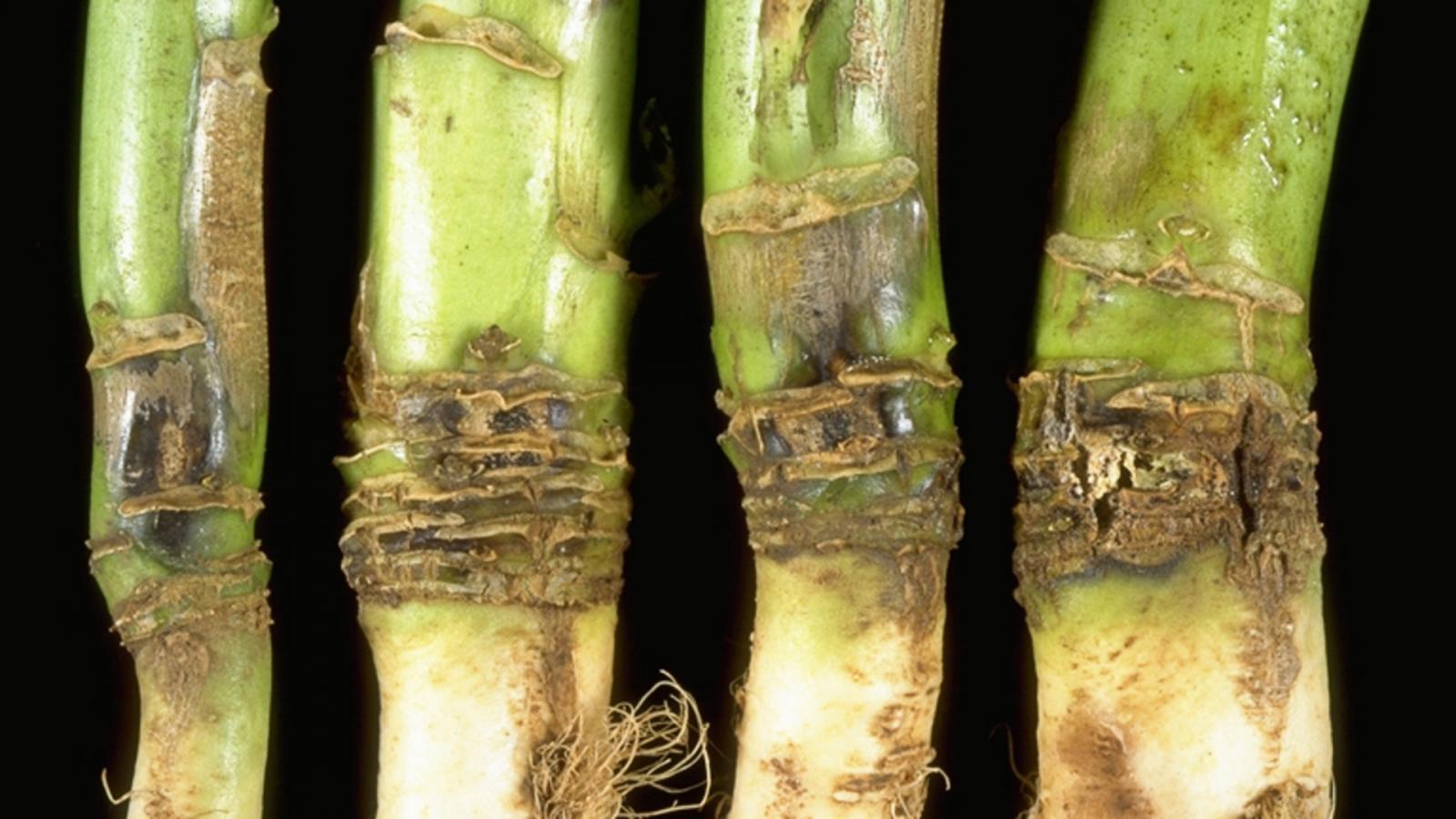United Kingdom
May 28, 2025

Phoma stem canker, a major crop disease that threatens oilseed rape yields internationally, may be becoming harder to control following the discovery of genetic changes in fungal pathogen populations that reduce the effectiveness of widely used fungicides. The findings raise pressing questions about the sustainability of current disease management strategies in European agriculture.
Phoma is caused by two related pathogens, Plenodomus lingam and P. biglobosus. For decades farmers have relied on azole fungicides to manage the disease. Reduced sensitivity in western European populations of P. lingam to azole fungicides was first reported last year. Now, in new research published in the journal Pest Management Science, scientists have confirmed decreased azole sensitivity for the first time worldwide in the other Phoma pathogen P. biglobosus.
Unlike in P. lingam, the azole sensitivity shifts in P. biglobosus were linked to a single mutation within the CYP51 (the target of azole fungicides) gene – this represents the first report of target site resistance to azole fungicides in a Phoma pathogen.
This is a worrying step in the wrong direction. Ongoing evolution of the pathogens may in future lead to azole resistance in the field and subsequent disease control failures.
“The mutation found in P. biglobosus is linked to a 7-fold decrease in sensitivity to the azoles tested. On its own, this is unlikely to contribute to Phoma disease control failure, but it is a worrying step in the wrong direction” said Rothamsted’s Dr Kevin King who led the research. “Ongoing evolution of the pathogens may in future lead to azole resistance in the field and subsequent disease control failures”. As oilseed rape remains a vital crop for food and biofuel production in the UK and beyond, the emergence of such fungicide resistance could have serious food and energy security implications.
To date the new mutation has been confirmed in Polish and UK populations of P. biglobosus, and could, in part, help explain recent findings of the strain becoming an increasingly important Phoma stem canker pathogen in Europe. Further surveys are now required to monitor the distribution and extent of the new mutation in European P. biglobosus populations and whether such mutations may also now be emerging in P. lingam. Additional research is also needed into strategies to slow selection for resistance caused by extensive use of azoles.
“Research into integrated pest management strategies — including crop rotation, resistant cultivars, and reduced reliance on fungicides — will also be important to safeguard future yields” explains Rothamsted’s Professor Jon West, a co-author on the study.
This work was a collaborative project between Rothamsted Research and the Polish Institute of Genetics, with work at Rothamsted supported by the Growing Health and Resilient Farming Futures strategic programmes.
Publication
Decreased DMI sensitivity of Plenodomus biglobosus (phoma of oilseed rape) associated with CYP51 substitution G476S
Kevin M King, Liza M González-Rodríguez, Joanna Kaczmarek, Małgorzata Jędryczka, Jonathan S West
First published: 28 May 2025
https://doi.org/10.1002/ps.8926